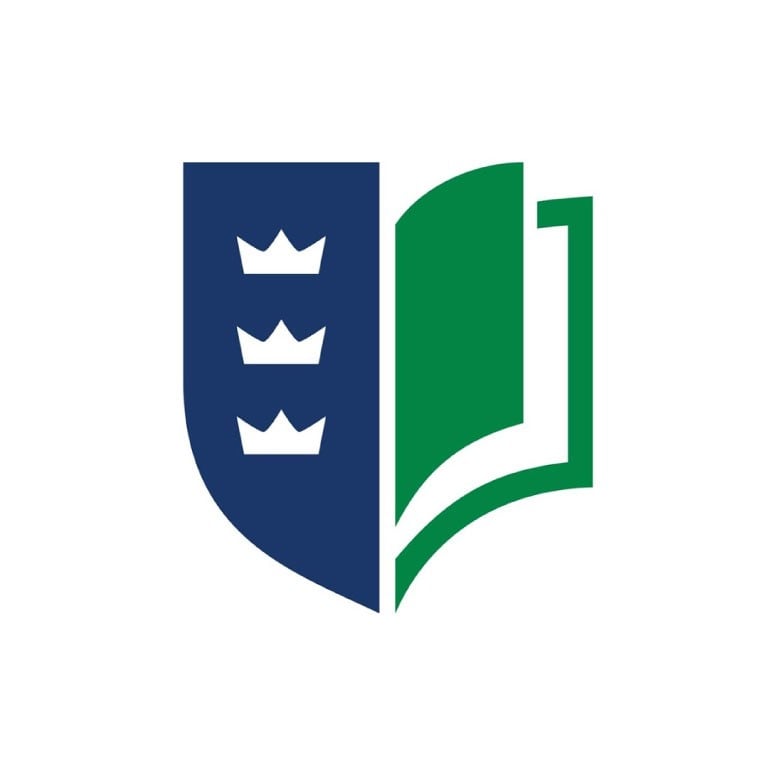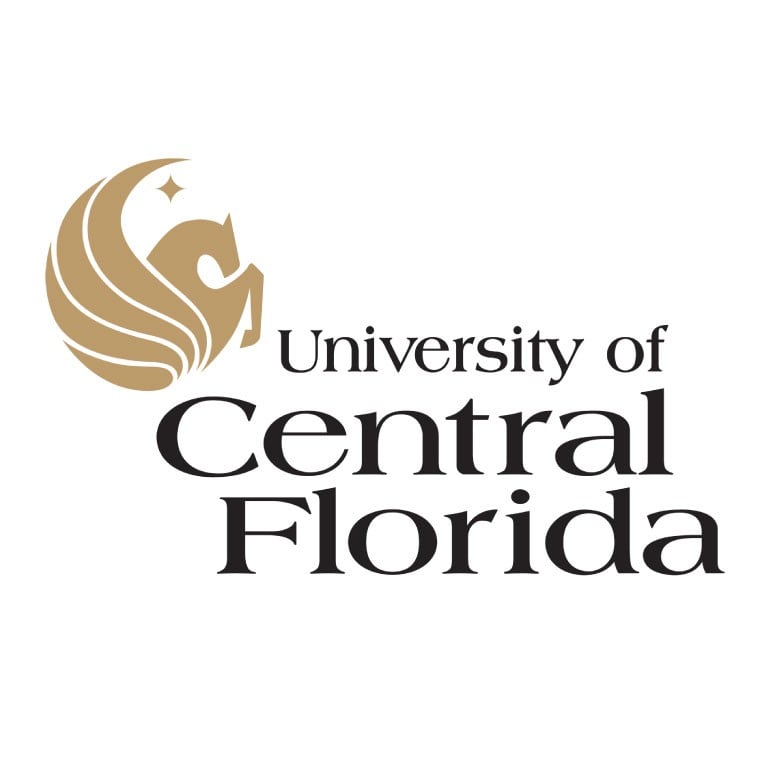Health informatics deals with the optimization of patient care. Professionals in this field merge expertise in health care with information technology skills that allow them to see how hospitals, administrators, and health care professions can better serve their patients and improve patient outcomes. Students further not only their core medical and health care knowledge, but also gain skills in data science, computer programming, and organizational dynamics.
See Also: Best Bachelor’s Programs in Biomedical Engineering
We do the research so you don’t have to!
That’s right, we get the hard work out of the way. We know that you have educational goals that you’re itching to pursue, but you may not know where to start. We’ve crafted a unique and proven ranking methodology that sets us apart. Our ranking score is based on the following three aspects:
40% Potential salary after graduation
30% Individual program accreditation
30% Overall affordability
Want to learn more about how we gather that information? Feel free to visit our dedicated methodology page for a step-by-step breakdown. We’re an open book!
If you’re interested in health informatics, be sure to check out our list of the 20 Best Master’s in Health Informatics!
Related Resource: Best Clinical Research Masters Online
Stanford University

Stanford University was founded in 1885 by Leland and Jane Stanford, who had made a fortune in the local railroad business. Stanford is considered one of the most selective universities in the world, and its campus in Palo Alto, CA is located near the heart of Silicon Valley, which is home to major tech corporations such as Facebook and Google.
Stanford is home to a Master of Science in Biomedical Informatics program that is offered through its distance learning service. The program takes an average of 3.5 years to complete. It is recommended that students begin the program as a non-degree seeking student.
The program curriculum requires the completion of 37 units of coursework in core biomedical informatics (15 or more units), STEM (18 units), and social/ethical issues courses (4 units). Courses from each of these sections include Data-Driven Medicine, Introduction to Statistical Inference, and Ethics in Bioengineering.
Students have up to five years to complete all program requirements. To be eligible for admission, applicants must be employed full-time and remain employed throughout the entire program. Local students are encouraged to engage in coursework and seminars offered on-campus through the program. The program ends with the completion of a Master’s Project.
Regis University

Regis University is a Jesuit university based in Denver and a member of the Association of Jesuit Colleges and Universities. Regis is home to just over 8,000 students and has an annual endowment of around $65 million. The school’s motto is “Men and Women in Service of Others.”
Regis’ Master of Science in Health Informatics is designed to build on students’ experience in the health care field by giving them new skills related to IT and data management. Students complete 36 credit hours of coursework, which is divided between 24 hours of core courses and a 12-hour specialization.
Students choose among specializations in Information Technology, Health Care Services, or Data Science. Core courses in the curriculum include Information System Concepts, Managing a Secure Enterprise, and Health Care Performance Evaluation. Students take four courses in their specialization area, the flexibility of which depends on the area chosen.
To be eligible for the program, applicants must hold a baccalaureate degree from a regionally accredited college or university, with a minimum GPA of 3.0. Students are accepted to the program on a rolling basis, and start dates are available in January, May, and August. The program is not intended to prepare students for the Registered Health Information Administrator licensure.
University of Kansas


The University of Kansas is the flagship school of Kansas’ public university system. Its main campus, in Lawrence, KS is home to more than 27,000 students. The university offers more than 345 degree programs, and the school has additional campuses and research sites throughout the state, including campuses in Salina and Wichita.
KU’s Master of Science in Applied Health Informatics program does not require GRE scores for admission. Students are not required to have health care experience to qualify for the program, though it is encouraged. The curriculum is designed to give students an interdisciplinary view of health informatics.
All students complete 40 credit hours of coursework, which is divided among informatics, leadership, and research courses. Students also select any area of focus from the following list: project management, clinical, health policy, and public health. Courses are mostly completed online. The program ends with a hands-on research project at one of the school’s partner institutions.
University of North Carolina at Chapel Hill

The University of North Carolina at Chapel Hill was chartered in 1789 and began enrolling its first students in 1795, making it one of three schools to claim the title of “oldest public university in the United States.” UNC’s faculty and alumni have been awarded 49 Rhodes Scholarships, 23 Pulitzer Prizes, and 9 Nobel Prizes.
UNC-Chapel Hill offers a Master of Professional Science in Biomedical and Health Informatics. The program is designed to give students professional development training through an interdisciplinary series of core courses, along with practicum and elective options that allow students to pursue their unique research interests.
Program courses are offered both on-campus and online. Students are required to complete a total of 35 credit hours, which are divided among 18 hours of core/fundamental informatics courses, six hours of business fundamentals, eight hours of specialization courses, and a practicum/internship experience.
The two specialization tracks offered are Clinical Health and Public Health. For the internship/practicum experience, students complete at least 400 hours of work in a setting related to their area of specialization. The practicum is taken at a point in the degree program that fits each student’s unique needs, and many students find that this coincides with their first semester.
Harvard University

Harvard University is the oldest institution of higher learning in the United States. The school is located in Cambridge, MA and is often cited as one of the top universities in the world. The university is home to 11 colleges and centers, including the Radcliffe Institute for Advanced Study.
Harvard Medical School offers a Master of Biomedical Informatics program designed to meet the needs of students pursuing biomedical careers in data science. Students can choose between a traditionally formatted program or an accelerated format. The traditional program requires 48 credit hours, while the accelerated requires 36.
The traditional program is intended for students with a bachelor’s degree related to health informatics. The accelerated degree program is paired with either a doctoral degree or for students who are currently enrolled in Harvard’s medical school. Students from both programs complete a capstone research project alongside a Harvard faculty member.
University of Iowa

The University of Iowa is the second-largest university in the state of Iowa, with more than 33,000 students, including nearly 9,000 postgraduates. UI is located in Iowa City and is classified by the Carnegie Institution as having “Very High Research Activity.”
The University of Iowa offers a Master of Science in Health Informatics that is a subprogram of Iowa’s Ph.D. in Health Informatics program. Students in the MS program choose between a thesis or a non-thesis degree plan. All students complete 32 credit hours of coursework.
The curriculum begins with two foundational health informatics courses before progressing to classes such as Programming Languages and Tools, Database Management, and Knowledge Discovery. Students also complete courses in research methodology and electives. Electives can be drawn from other UI schools, including those of Business, Engineering, Liberal Arts, Public Health, and Medicine.
University of North Carolina at Charlotte

The University of North Carolina at Charlotte has three campuses: the Charlotte Research Institute, Center City, and the Main Campus. The main campus is situated within a 1,000-acre wooded area. In the past 10 years, the school’s enrollment has grown by around 30%, which makes it the fastest-growing school in the UNC system.
The UNC Charlotte offers a Master of Science in Health Informatics and Analysis that is designed with a focus on applied research. Students complete 36 credit hours of courses divided among core competencies, research, and business skills.
Core courses include Health Care Data Analysis; Big Data Design, Storage, and Provenance in Health Care; and Health Information Privacy and Security: Law, Ethics, and Technology. The internship is generally completed during the summer between a student’s first and second years. The program ends with a capstone course completed during the final semester.
Students in the program can choose between face-to-face or online delivery formats for most courses, though not all courses are available online. Students must also complete training modules in computer vocabulary, programming systems, health vocabularies, and classification systems, though these can be waived based on prior training or experience.
Duke University

Duke University is a private university located in Durham, NC. The school was founded by Methodists and Quakers, and while it has a historical affiliation with the United Methodist Church, it classifies itself as nonsectarian. Duke has an annual endowment of more than $8 billion and is attended by nearly 16,000 students.
Duke offers a one-year Master of Management in Clinical Informatics program that gives students skills in patient care optimization. Coursework is delivered in a blended format. Students are on-campus once per month, on a Friday and Saturday, and the rest of their coursework is completed online.
The average age for students in the program is 37 years, and students bring between 2 and 25 years of work experience with them into the program. Applications are considered on a rolling basis, and students with bachelor’s degrees from U.S. universities are not required to submit GRE scores. Courses in the program include Business Strategy, Applied Data Science, and Clinical Informatics Ethics Seminar.
In addition to the required residency component, students have the option of being on campus for one additional Saturday per month, in lieu of participating remotely. The program is generally designed for physicians, clinicians, or professionals working in information technology. There is a 97% graduation rate for students in the program.
Marshall University

Marshall University is located in Huntington, WV and was named after the fourth Chief Justice of the U.S. Supreme Court, John Marshall. Marshall has nine schools and colleges on its campus, which serve a student population of around 13,000. Its sports teams are known as the Thundering Herd.
Marshall offers an interdisciplinary Master of Science in Health Informatics degree through three of its colleges, Health Professions, Business, and Information Systems. The curriculum includes 39 credit hours of courses, though additional foundation courses may be required for students with no relevant undergraduate background.
Health Professions courses include the Health Informatics Practicum, as well as courses in research methods and the regulatory environment around informatics. Students courses in telematics and information systems from the School of Business, followed by classes in the College of Information Technology, such as Database and Project Management courses, in addition to others.
University of Utah

Located in the state capital of Salt Lake City, the University of Utah was founded in 1850 as the University of Deseret, but adopted its current name in 1892, just before Utah joined the Union. Utah has a university health system that houses four hospitals, 12 community clinics, and a number of specialized treatment centers, including the Moran Eye Center.
Utah offers both a Master of Science in Biomedical Informatics program and a Ph.D. in the same subject. The master’s program is a non-thesis one for working professionals and includes three specialization track options. Each track has its own credit requirement, but all students complete at least 30 credit hours of coursework. The tracks are Bioinformatics, Data Science, and Applied Clinical Informatics. The master’s program does not put an emphasis on research; students interested in a research program should pursue the doctoral program. Sample courses from the master’s program include Clinical Database Design and Introduction to Python.
Northeastern University

Northeastern University has 27,000 students on its Boston campus, including 8,600 postgraduates. Many of its major programs use a “co-op” method that blends professional experience with classroom study. More than 75% of students at the university receive some level of financial aid or assistance, and the university awarded nearly $300 million in grants and scholarships during the 2019-2020 academic year.
Northeastern University has a Master of Science in Health Informatics program that is taught concurrently through its Colleges of Computer Sciences and Health Sciences. Required courses include Business of Health Care Informatics, Project Management, and Data Management in Health Care. Students may also take electives such as Design for Usability in Health Care.
Students are generally expected to have a baccalaureate degree from an accredited college or university, with a minimum GPA of 3.0. Those whose GPA is below this threshold may still be considered for admission, based on their professional work experience and their demonstrated capacity for pursuing graduate study.
In addition to the MS program, a Graduate Certificate in Health Informatics is available. Students may choose to take courses either in-person or online. The master’s program includes research opportunities that can allow students to pursue doctoral programs after they graduate. The school also has industry partners that can provide internships or even post-graduation job opportunities.
East Carolina University

East Carolina University was founded in 1907 as a teacher’s training school and became a full university in 1967. It now serves a population of more than 29,000 students, making it the fourth-largest university in the state of North Carolina. Its main campus is located in Greenville, NC.
East Carolina offers a Master of Science in Health Informatics and Information Management. Students are required to complete 39 credit hours of coursework. Students generally have work experience in the health care field, but students without this experience can take a course, Health Care Systems and Problems, concurrently with their other coursework to catch up, if needed.
The program curriculum includes Decision Support in Health Care, Quality Management in Health Care, Health Data Structures, E-Health Care Information Systems, and Electronic Health Records. To complete the program, students choose between completing an original thesis or engaging in an internship in health informatics and information management.
Medical University of South Carolina

The Medical University of South Carolina is a public medical school located in Charleston, SC. It is the oldest continuously operating school of medicine in the Deep South. The main campus is home to a medical center and six colleges, along with a research center and public hospital. Programs at the school train health care professionals, biomedical scientists, and health professions.
MUSC’s Master of Science in Health Informatics program is delivered entirely online and primarily intended for people currently working in health care professions, including nurses and doctors. Students are generally expected to have at least one year of health care or IT work experience, but it is not required for admission.
All students begin the program in the fall semester. Students take 36 credit hours of classes, with full-time students enrolling in three classes per semester. The program opens with courses such as Database Management, Systems Analysis, and Applied Statistical Research. Later courses include Data Mining and Analytics; Applied Health Informatics; and Ethical, Legal, and Regulatory.
There are no prerequisite courses required for admission to the program. Students are expected to spend roughly five days on campus during their initial semester, and four days during each subsequent semester in the program. Students enrolled full-time can generally finish within four semesters, while part-time students take closer to six semesters to meet graduation requirements.
University of North Texas

The University of North Texas is a public university located in Denton, TX. The school was founded in 1890 and is considered the flagship school of the University of North Texas system. The school is home to 13 schools and colleges, along with an early admissions math and science academy for high-performing Texas high school students.
The University of North Texas’ Master of Science in Information Science has a focus on Health Informatics that requires 36 credit hours of coursework (12 courses). Each student in the program must complete a practicum/internship experience, though this can be waived based on previous professional experience.
Required courses in the program include Information Organization and Information and Knowledge Professions. Once students have completed their core courses, they move on to guided electives in their focus area. These can include subjects such as Web Content Development, Data Modeling for Information Professionals, and Medical Informatics.
George Mason University

George Mason was originally founded as a part of the University of Virginia in 1956, before transitioning to become an independent school in 1972. George Mason has four campuses throughout Virginia, including its main campus in Fairfax, and a fifth campus located in Songdo, South Korea.
George Mason University has a Master of Science in Health Informatics degree program. Students can pursue either a traditional or an accelerated version of the program, with between 33 and 39 credit hours of coursework required, depending on the degree path chosen. Students also have the option of choosing an on-campus or online delivery format for their coursework.
There are three concentration options available: Health Data Analytics, Health Information Management, and Population Health Informatics. Core courses include Health Care Databases, Advanced Health Information Systems, and Computation Tools in Health Informatics. To finish the program, students must either take a capstone practicum course or complete a master’s thesis.
Students must apply to the program based on the delivery mode that they wish to pursue. Most on-campus courses are taken at the Fairfax, VA campus. Students in this version of the program have the option of self-pacing their coursework, though degree requirements must be met within six years of matriculation. The online version of the program delivers courses in an accelerated 8-week format.
Johns Hopkins University

Johns Hopkins University is one of the largest research universities in the world, with more than $2.5 billion spent on research in the 2016 fiscal year alone. The university is split among 10 divisions in Maryland and Washington D.C., with its main campus in Baltimore and international centers in Italy and China.
Johns Hopkins is home to a Master of Science program in Health Science Informatics. The 96 quarter-credit program is designed to be completed in two years. Students take core, elective, and thesis courses. Core courses take up 30 quarter-credits, while electives take up another 22 quarter-credits.
The program has a research emphasis, which is why more than one-third of the credits are devoted to the student’s research project. Students must also take two non-credit-bearing courses, Introduction to Online Learning and Research Ethics.
Nova Southeastern University

Nova Southeastern University is a private university located in Davie, FL. The school offers more than 150 programs of study to its 20,000 students. The main campus is home to 18 schools and colleges. The school merged with the Southeastern University of Health Sciences in 1994, which greatly expanded the school’s health science degree offerings.
Nova Southeastern’s Master of Science in Biomedical Informatics offers three major focus areas: Business Management, Clinical Informatics, and Computer Science. Students take 32 credit hours (11 courses) in the program, which begins with Survey of Medical Informatics and Orientation to Biomedical Informatics.
Students move on to advanced coursework related to Information Security in Health Care, Database Systems in Health Care, and Lean Six Sigma Yellow Belt for Health Care. Students may also take foundational courses in Medical Terminology or Foundations of Software in Health Care, if necessary. Elective courses may also cover topics such as grant writing or epidemiology.
University of Central Florida

The University of Central Florida is one of the largest public universities in the state of Florida, as well as one of the largest in the United States. Its more than 66,000 students attend classes on the main Orlando campus, or at regional campuses, including the Central Florida campus and the Center for Emerging Media, in downtown Orlando.
UCF is home to a Master of Science degree program in Health Care Informatics. This is an online master’s degree delivered through 7-week course terms; a total of 38 credit hours of coursework are required for the degree. The program is offered through UCF’s College of Community Innovation and Education.
Courses in the curriculum include Health Care Informatics and Information Technology, Systems Analysis and Design, and Health Care Database Management. Students can complete the program in as little as two years. In addition to the program coursework, students are supported in pursuing internship opportunities that will lead them down their new career path.
The UCF Health Care Informatics program has a 93% graduate job placement rate. Students can begin the program in either the fall or spring semester. Graduates of the program have gone on to fill vital health care roles, such as Chief Medical Information Officer, Clinical Researcher, and Health Care IT Project Manager.
University of San Diego

The University of San Diego is a private Roman Catholic university that, at its founding in 1949, was known as the San Diego College for Women. The school offers more than 79 undergraduate and graduate degree programs, and has nine different schools and colleges on its main campus. The campus is also home to a coeducational Catholic preparatory high school.
USD’s Master of Science in Health Care Informatics includes an option for one of three specialization tracks: Health Care Analytics (Data Science), Health Care Informatics, or Health Care Informatics Leadership. The curriculum requires 42 units of coursework.
The Health Care Informatics track requires students to complete a practicum experience that gives them practical experience in health informatics settings. Students are placed in partner community agencies in the San Diego area, so they can obtain advanced experience while still being supported in the program. This is an option for students in the Analytics and Leadership tracks, but it is not required.
Program graduates are qualified for certification by the Health Information and Management System Society. The program can be completed either on-campus or completely online. One year of work experience is preferred for applicants, along with a minimum undergraduate GPA of 3.0.
Northwestern University

Northwestern University is located in Evanston, IL, but also has campuses in Chicago and Doha, Qatar. Northwestern has an annual endowment of more than $11 billion, which is one of the 10 largest university endowments in the country. Northwestern is the only private university in the Big Ten Athletic Conference, which it helped to found.
Northwestern’s Master’s in Health Informatics is an online degree offered through both the School of Professional Studies and the Feinberg School of Medicine. Students in the program choose from one of three areas of specialization: Clinical Informatics, Health Administration Informatics, or Health Technology Informatics.
Students complete 12 courses in the program, which are split among five core courses, four required courses, and three electives. Students complete the program with a capstone course or by writing an original thesis. Each specialization area requires students to complete four required courses related to the chosen topic.
Frequently Asked Questions
Healthcare informatics is one of the fastest-growing job fields in the country, in no small part thanks to its location at the intersection between healthcare and technology. The health care market is growing significantly each year, and as more patients demand care, hospitals and health care providers need to make their care delivery as focused and efficient as possible. This is why health information professionals can expect their job market to expand by more than 10% in the coming decade, according to the Bureau of Labor Statistics. This, as the BLS puts it, is “Much Faster than Average” growth, which will lead to nearly 25,000 new jobs. Students with graduate degrees will see some of the highest salary prospects in the market, with some earnings around $73,000 per year!
A Masters in health informatics can be valuable for those interested in blending healthcare and technology careers. It offers opportunities to work with:
• electronic health records
• data analysis
• healthcare software development
Health informatics involves some math, especially in data analysis and statistical interpretation. However, the level of math required depends on specific job roles within the field, and there are many opportunities that don’t heavily rely on advanced mathematical skills.
Yes, health informatics is in high demand due to the growing reliance on digital health records and data-driven healthcare practices. It offers diverse career opportunities in healthcare settings, technology companies, and research institutions.
A Master’s in health informatics can be challenging as it involves learning about both healthcare systems and information technology. However, with dedication and interest, students can succeed and contribute to improving healthcare through data management and technology integration.
Coding skills can be helpful in health informatics but are not always required. Understanding basic coding concepts like SQL and Python can enhance your ability to work with data, but many roles in health informatics focus more on data analysis and system implementation than coding itself.
A Master’s in health informatics typically takes around 1.5 to 2 years to complete, depending on whether you study full-time or part-time. It involves coursework in healthcare systems, data analysis, and information technology.
To start a career in health informatics, focus on getting a bachelor’s degree in a related field like computer science or healthcare administration. Gain experience through internships or entry-level jobs in healthcare or IT settings, and consider pursuing a master’s degree in health informatics for advanced opportunities. Networking with professionals in the field and staying updated on industry trends can also help you succeed.
Related Articles:
Best Schools for Master’s in Public Health
Top Online Bachelor’s Degrees in Health Informatics
Top Programs for Online Bachelor’s Degrees in Healthcare Administration
